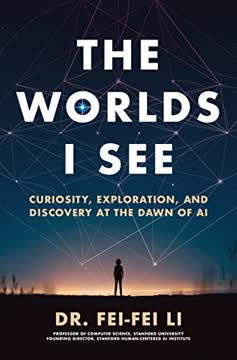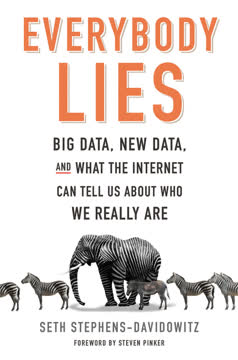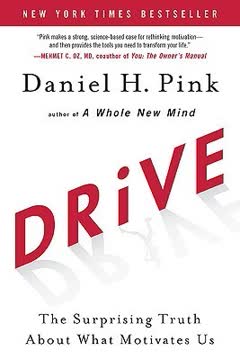Key Takeaways
1. Automation changes the nature of work, often in unexpected ways
Automation remakes both work and worker.
Unintended consequences. The introduction of automation into various fields, from aviation to medicine, has led to unforeseen shifts in how tasks are performed and perceived. In many cases, the human role changes from active participant to passive monitor, leading to decreased engagement and situational awareness.
- Examples of unexpected changes:
- Pilots spending less time actively flying
- Doctors becoming more reliant on electronic medical records
- Financial traders focusing on algorithm management instead of market analysis
These shifts can result in a loss of tacit knowledge and hands-on experience, potentially compromising the quality and safety of work in critical situations. As automation advances, it's crucial to consider not just efficiency gains, but also the holistic impact on human skills, job satisfaction, and overall system resilience.
2. Overreliance on technology can lead to skill degradation
The fact is the sweetest dream that labor knows.
Use it or lose it. As we increasingly rely on automated systems and digital aids, there's a risk of losing essential skills and knowledge. This phenomenon, known as automation complacency or the "degeneration effect," can have serious consequences in high-stakes environments.
- Areas where skill degradation has been observed:
- Pilots' manual flying abilities
- Doctors' diagnostic reasoning without computer assistance
- Navigational skills in the age of GPS
Research shows that maintaining proficiency requires regular practice and engagement with tasks. To counteract skill degradation, it's important to:
- Design systems that keep humans actively involved
- Implement training programs that emphasize foundational skills
- Encourage periodic manual operation or problem-solving without technological aids
3. Human-centered design is crucial for effective automation
Automation can take a toll on our work, our talents, and our lives. It can narrow our perspectives and limit our choices.
Putting people first. Instead of designing automated systems solely for maximum efficiency, a human-centered approach considers the needs, capabilities, and limitations of the people who will use and interact with the technology. This approach can lead to more effective and safer systems.
Key principles of human-centered automation:
- Maintain meaningful human involvement
- Provide clear feedback and situational awareness
- Allow for easy intervention and control when necessary
- Support skill development and maintenance
Examples of human-centered design include adaptive automation systems that adjust their level of assistance based on the user's needs and workload. By keeping humans "in the loop" and leveraging their unique strengths, human-centered automation can achieve better outcomes than fully autonomous systems in many complex environments.
4. The hidden costs of convenience in personal technology
As we habituate ourselves to it, the technology comes to exert more power over us, not less.
Convenience at a price. While personal technologies like smartphones, GPS navigation, and social media platforms offer unprecedented convenience and connectivity, they also come with hidden costs to our cognitive abilities, attention, and autonomy.
Potential negative impacts of convenience technologies:
- Reduced spatial awareness and navigational skills due to GPS reliance
- Decreased ability to remember information we can easily look up online
- Shortened attention spans and increased distractibility
- Loss of privacy and increased vulnerability to manipulation
To mitigate these effects, it's important to:
- Be mindful of how we use technology
- Deliberately practice and maintain important cognitive skills
- Seek a balance between technological assistance and personal capability
- Critically evaluate the trade-offs between convenience and long-term well-being
5. Ethical challenges arise as machines make more decisions
Computers are as good at analyzing symbols and otherwise parsing and managing information as they are at directing the moves of industrial robots.
Moral machines. As artificial intelligence and automated systems become more sophisticated, they are increasingly tasked with making decisions that have ethical implications. This raises complex questions about responsibility, accountability, and the values embedded in algorithms.
Examples of ethical challenges in automation:
- Self-driving cars deciding how to respond in potential accident scenarios
- AI systems making hiring or lending decisions
- Autonomous weapons systems determining targets
Addressing these challenges requires:
- Transparent development processes for AI and automated systems
- Diverse input in the design and programming of decision-making algorithms
- Clear frameworks for accountability and human oversight
- Ongoing ethical review and adjustment of automated systems
6. Automation reshapes our relationship with the physical world
We're surrounded by what the political scientist Langdon Winner has termed "concealed electronic complexity."
Digital distancing. As more aspects of our lives become mediated through screens and automated systems, our direct engagement with the physical world can diminish. This shift has implications for our cognitive development, sense of place, and overall well-being.
Effects of increased automation on our relationship with the world:
- Reduced sensory engagement with environments
- Decreased development of spatial awareness and navigational skills
- Potential weakening of memory formation related to physical experiences
- Changes in how we perceive and value direct, unmediated experiences
To maintain a healthy connection with the physical world:
- Consciously seek out unmediated experiences in nature and built environments
- Practice mindfulness and attention to sensory details in daily life
- Engage in activities that require physical skill and spatial awareness
- Balance screen time with real-world interactions and explorations
7. Resistance to automation can be valuable and necessary
If we don't understand the commercial, political, intellectual, and ethical motivations of the people writing our software, or the limitations inherent in automated data processing, we open ourselves to manipulation.
Thoughtful skepticism. While automation often brings benefits, there are times when resisting or limiting its implementation can be valuable. This resistance isn't about rejecting progress, but about carefully considering the full implications of automated systems and preserving important human skills and values.
Reasons to consider resisting automation:
- Maintaining essential skills and knowledge
- Preserving human judgment in complex or ethically sensitive situations
- Protecting privacy and personal autonomy
- Ensuring system resilience and the ability to function without technology
Effective resistance to automation involves:
- Critical evaluation of proposed automated systems
- Advocating for human-centered design principles
- Supporting policies that prioritize human well-being over pure efficiency
- Personal choices to engage in manual or non-automated activities
8. The future of work requires a balance between human and machine
We may need to place limits on automation. We may have to shift our view of progress, putting the emphasis on social and personal flourishing rather than technological advancement.
Collaborative intelligence. The most effective approach to automation is not to replace humans entirely, but to find the optimal balance between human and machine capabilities. This approach leverages the strengths of both to create systems that are more robust, adaptable, and aligned with human values.
Key considerations for balancing human and machine work:
- Identifying tasks best suited for automation vs. human performance
- Designing systems that enhance rather than replace human capabilities
- Developing new skills that complement automated systems
- Creating policies and practices that support meaningful human work
The future of work will likely involve closer human-machine collaboration, with automation handling routine tasks and data processing, while humans focus on complex problem-solving, creativity, emotional intelligence, and ethical decision-making. This shift will require ongoing adaptation in education, job training, and workplace design to ensure that humans remain relevant and fulfilled in an increasingly automated world.
Last updated:
FAQ
What's The Glass Cage: Automation and Us about?
- Focus on Automation's Impact: The book examines how automation affects human work, creativity, and decision-making, highlighting both benefits and drawbacks.
- Human vs. Machine Dynamics: Nicholas Carr explores the evolving relationship between humans and machines, emphasizing the potential loss of agency and critical thinking.
- Ethical Considerations: It raises ethical questions about automation's role in society, particularly in sensitive areas like healthcare and military applications.
Why should I read The Glass Cage: Automation and Us?
- Insightful Analysis: Carr provides a thought-provoking examination of how automation shapes our lives and work environments.
- Relevance to Modern Life: Understanding automation's effects is crucial for anyone navigating today's technology-driven world.
- Encourages Critical Thinking: The book inspires readers to think critically about their relationship with technology and its broader societal implications.
What are the key takeaways of The Glass Cage: Automation and Us?
- Automation's Double-Edged Sword: While it can improve efficiency, automation can also lead to skill degradation and complacency.
- Human-Centered Design Importance: Carr advocates for automation that enhances human skills and engagement rather than replacing them.
- Ethical Responsibility: The book stresses the need for ethical considerations in designing and implementing automated systems.
What are the best quotes from The Glass Cage: Automation and Us and what do they mean?
- "The trouble with automation...": Highlights the paradox of gaining convenience at the cost of essential skills and autonomy.
- "Automation breeds automation.": Warns that dependency on automated systems can diminish critical thinking and creativity.
- "A glass cockpit can also be a glass cage.": Illustrates how reliance on automation can confine us, limiting meaningful engagement with work.
How does Nicholas Carr define automation in The Glass Cage: Automation and Us?
- Definition of Automation: Carr describes it as using computers and software to perform tasks previously done by humans.
- Human Consequences: He argues that automation affects cognitive abilities, skills, and even personal identities.
- Cultural Shift: The book highlights how automation transforms workplaces and societal expectations, prompting a reevaluation of work.
What examples of automation does Nicholas Carr discuss in The Glass Cage: Automation and Us?
- Aviation Automation: Examines autopilot systems and their impact on pilot skills and complacency.
- Medical Records: Discusses electronic medical records, noting both benefits and unintended consequences like increased costs.
- Everyday Technology: Addresses tools like GPS and smartphone apps, showing their effects on cognitive processes and direction sense.
What is the "Yerkes-Dodson law" mentioned in The Glass Cage: Automation and Us?
- Performance and Arousal: The law posits an optimal arousal level for peak performance; too little or too much can hinder effectiveness.
- Application to Automation: Carr uses it to explain how automation can lead to underload, reducing mental engagement and performance.
- Implications for Skill Development: Highlights the need for balance between challenge and skill, suggesting automation can disrupt this balance.
How does The Glass Cage: Automation and Us address the issue of cognitive biases?
- Automation Complacency: Discusses how reliance on automated systems can lead to less vigilance and task disengagement.
- Automation Bias: Explains that people may overly trust automated information, ignoring their own judgment, leading to errors.
- Impact on Decision Making: Highlights dangers in high-stakes environments like aviation and medicine, where quick, accurate decisions are crucial.
What specific methods or advice does Nicholas Carr offer regarding automation in The Glass Cage: Automation and Us?
- Embrace Human-Centered Automation: Prioritize designs that enhance human skills and engagement over mere efficiency.
- Limit Automation's Scope: Be cautious about automation extent, especially in critical areas like healthcare and aviation.
- Encourage Skill Development: Foster environments for skill maintenance and development, promoting hands-on experiences and critical thinking.
How does Nicholas Carr illustrate the effects of automation in healthcare in The Glass Cage: Automation and Us?
- Electronic Medical Records (EMR): Highlights increased workloads and potential detriment to doctor-patient relationships.
- Decision Support Systems: Points out that these systems can hinder medical professionals by fostering complacency.
- Ethical Concerns: Raises questions about technology reliance in healthcare, emphasizing the need for the human touch.
What does Nicholas Carr suggest about the future of work in relation to automation in The Glass Cage: Automation and Us?
- Need for Adaptation: Emphasizes adapting to automation's evolution by developing new skills and integrating technology thoughtfully.
- Reevaluation of Values: Calls for prioritizing human flourishing and creativity over mere efficiency and productivity.
- Potential for Resistance: Encourages proactive shaping of work and technology to align with human values and needs.
How does The Glass Cage: Automation and Us relate to the concept of flow?
- Flow and Engagement: Connects flow to being fully engaged in work, arguing automation can disrupt this by removing challenges.
- Skill Development and Flow: Suggests maintaining task difficulty is essential for fostering engagement and satisfaction.
- Technology's Role in Flow: Discusses how technology can both facilitate and hinder flow, depending on its design and use.
Review Summary
The Glass Cage explores the impacts of automation on human skills and cognition. Carr argues that over-reliance on technology can dull our minds and senses, citing examples from aviation, medicine, and navigation. While acknowledging technology's benefits, he warns against blindly embracing automation without considering its effects on human autonomy and expertise. The book encourages readers to critically examine the role of technology in society and advocates for human-centered design. Reviews praise Carr's thought-provoking analysis, though some critics find his arguments one-sided or lacking in solutions.
Similar Books









Download PDF
Download EPUB
.epub digital book format is ideal for reading ebooks on phones, tablets, and e-readers.







